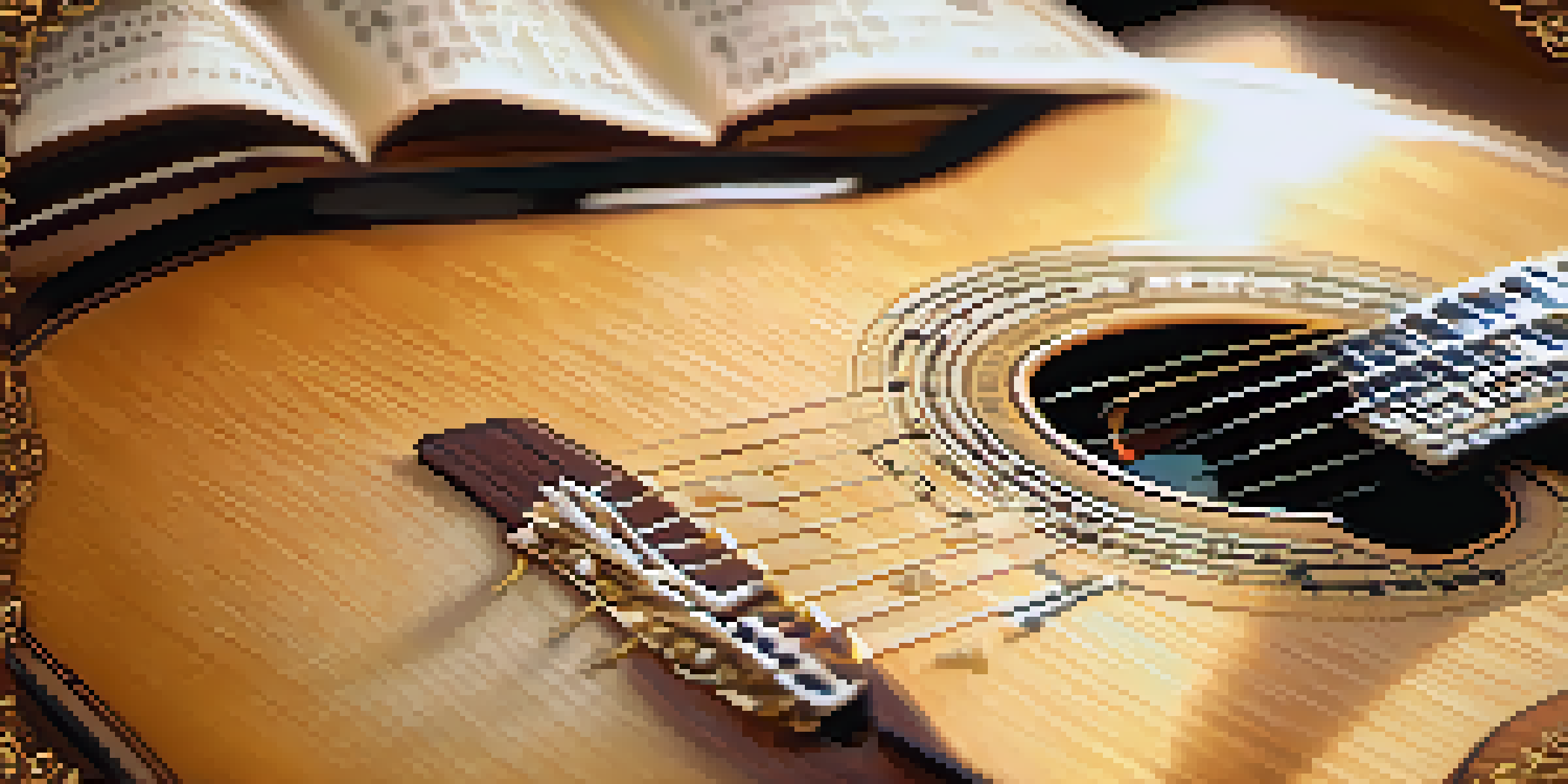Common Challenges in Guitar Transcription and Solutions

Understanding the Basics of Guitar Transcription
Guitar transcription is the process of converting music into written notation or tablature. It requires a keen ear and a solid understanding of music theory, especially if the piece includes complex chords or solos. Many beginners struggle with this initial step, finding it overwhelming to translate sounds into symbols. It's important to remember that every musician starts somewhere, and mastering the basics is key to building confidence.
Difficulty in Hearing Nuances and Techniques
One of the biggest challenges in guitar transcription is picking up subtle nuances, like slides, bends, and vibrato. These techniques can significantly affect the sound and feel of the music, yet they might not be immediately obvious to the untrained ear. Listening closely and repeatedly, perhaps slowing down the recording, can help. Tools like transcription software can also isolate these elements, making them easier to identify.
Mastering Guitar Transcription Basics
Understanding notation and techniques lays the foundation for effective guitar transcription.
Identifying Chord Progressions Accurately
Transcribing chords can be tricky, especially when songs incorporate unusual progressions or key changes. Guitarists often play complex voicings that may not follow typical patterns, leaving transcribers second-guessing their choices. A good approach is to isolate each chord and play it on the guitar to confirm its accuracy. Using online chord databases can also provide a helpful reference point.
Transcribing Fast Solos and Licks
Fast guitar solos can feel like a whirlwind, making them one of the most daunting aspects to transcribe. The speed of the notes often leads to confusion, and it’s easy to miss important details. Breaking the solo down into smaller sections can make it more manageable. Additionally, using a metronome can help keep track of the rhythm while you work on each segment slowly.
Patience is Key to Progress
Consistent practice and embracing mistakes are essential for developing transcription skills over time.
Overcoming Notation Confusion
For those new to guitar transcription, navigating musical notation can be a real head-scratcher. Tablature and standard notation each have their own rules and symbols, which can create confusion. Familiarizing yourself with the basics of both systems is crucial. Using visual aids, like charts or videos, can also make learning these notations more engaging and less intimidating.
Finding the Right Tools for Transcription
Choosing the right tools can significantly impact your transcription experience. There are numerous software options available that cater to different skill levels, from basic audio players to advanced transcription tools. Selecting software that allows you to change pitch and speed can make a world of difference. Experimenting with a few different options can help you find the perfect fit for your needs.
Utilizing the Right Tools
Choosing appropriate software can enhance the transcription process and make it more manageable.
The Importance of Patience and Practice
Transcription is not a skill that develops overnight; it requires patience and consistent practice. Many guitarists find themselves frustrated when they don’t see immediate improvement, but persistence is key. Setting aside time each day to work on transcription, even in small increments, can lead to significant progress over time. Remember, every note you transcribe contributes to your overall musical development.
Learning from Mistakes and Seeking Feedback
Embracing mistakes as part of the learning process is vital in guitar transcription. Often, the most educational moments come from analyzing what went wrong. Sharing your transcriptions with peers or mentors can provide valuable feedback to improve your skills. Joining online communities or local music groups can also offer support, motivation, and a wealth of shared experiences.